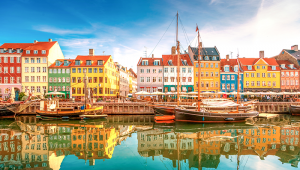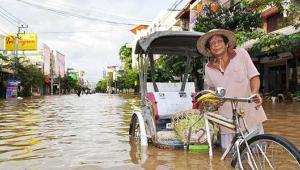Web_Copenhagen_shutterstock_244708048.jpg

Copenhagen, Denmark
The Centre for Global Development yesterday issued its annual Commitment to Development Index, which ranked 27 of the richest countries in the world according to their approach to aid, trade, finance, migration, the environment and security.
A key message was that all rich countries could to more to ensure their policies have positive spill over for the rest of the world.
Owen Barder, senior fellow, director and vice president of CGD Europe, explained that development-friendly policies are a “win-win for both rich and poor”, bringing about sustained and shared prosperity.
The think-tank maintains that improving conditions for the world’s poorest people benefits wealthy countries, as security and prosperity elsewhere creates new economic opportunities, increases innovation and reduces risks posed by public health, security and economic crisis.
Denmark was ranked as the best overall performer, with high scores across the board but particularly in aid and technology. Japan on the other hand finds itself at the bottom of the table, with its worst ranking areas being the environment, trade and security.
The United States scored a poor rating in regards to its investments in developing countries, as it does not properly monitor the environmental and social impacts of the projects it finances.
The US, Netherlands, and UK all came out low in the finance category because they enable secrecy jurisdictions within their sphere of influence. Switzerland joins the US near the bottom for its financial secrecy rankings, while Canada’s financial transparency also brought down its overall score.
South Korea found itself ranked poorly in terms of aid generosity and quality, in trade (due to high tariffs on grains, seeds and nuts) and in security, with the lowest contributions to peacekeeping missions and a failure to ratify a treaty banning mines.
Along with Australia, South Korea also fails to make data on the arms it exports publicly available. Sweden, France, the Czech Republic and Germany do, but are penalised in the CDI for exporting a large amounts of arms to poor and undemocratic countries.
The US’s security score also takes a blow from its failure to ratify the Ottawa Convention that prohibits the use of mines and from being the only CDI country that is not party to the Comprehensive Nuclear Test Ban Treaty.
Japan is not a party to any important international migration agreements, and along with Hungary and Slovakia lacks any effective policy to integrate migrants.
Slovakia was also found to be the least generous aid donor, while Italy and Belgium scored last on bilateral aid quality and New Zealand and Greece in multilateral aid quality.
Norway was found to be the most generous country in terms of aid and investment, but on the other hand produces the largest amount of fossil fuel per capita, followed by Australia, Canada and the US.
Australia is also the biggest emitter of greenhouse gases per capita, and the US and Canada are the only CDI countries not party to the Kyoto Protocol, the most serious international effort to deal with climate change so far.
A number of the CDI countries, including those in the EU, US, Australia and New Zealand were commended for development-friendly trade policies, but Switzerland, Norway, Japan and South Korea all languished at the bottom for red-tape, high tariffs and lack of openness in trade.
The CDG called on all policymakers to take note and work to strengthen the areas where national policies and behaviour are not conducive to the common good.













